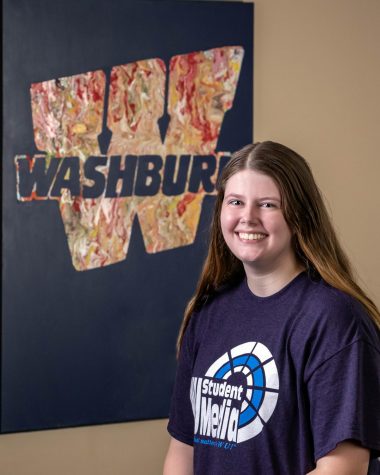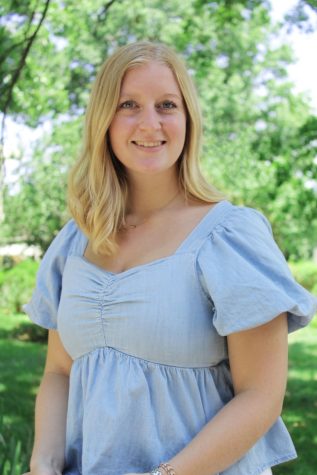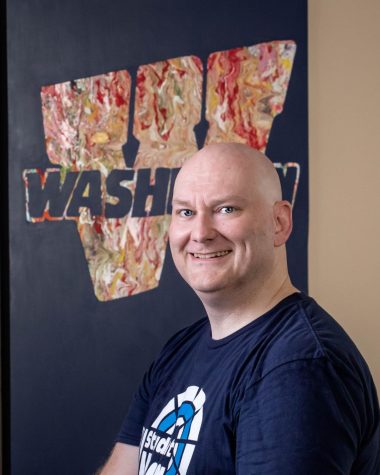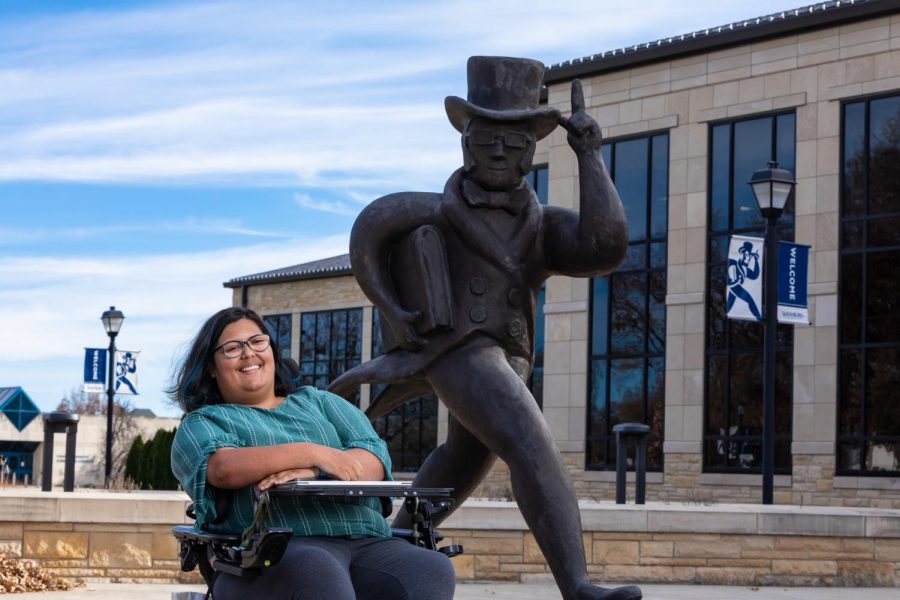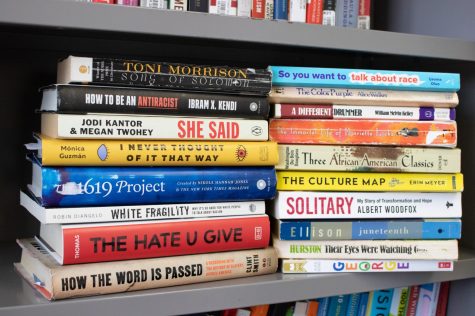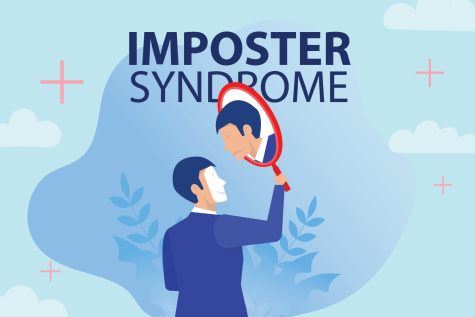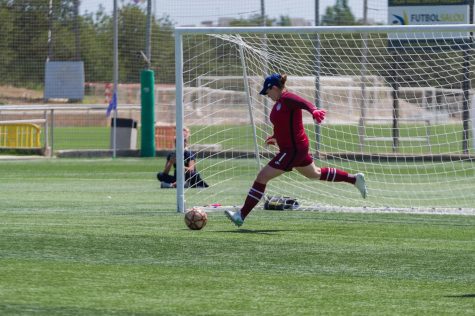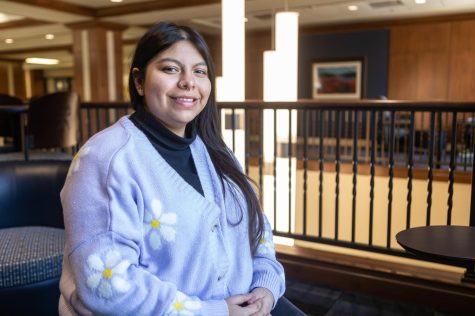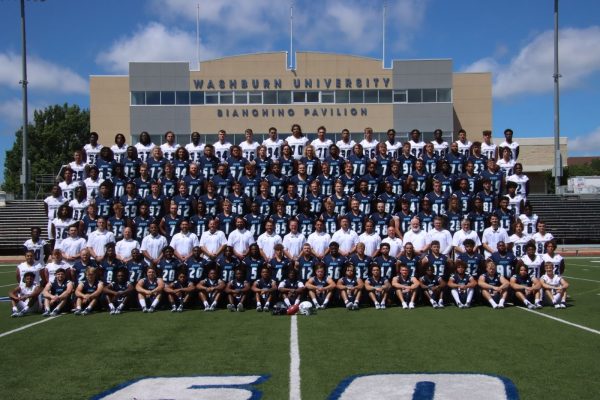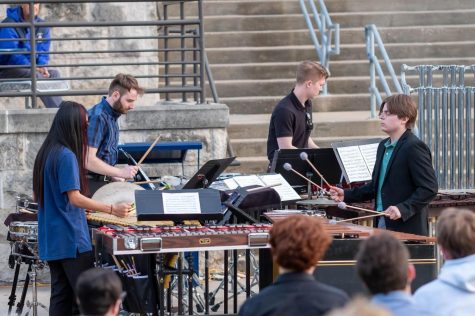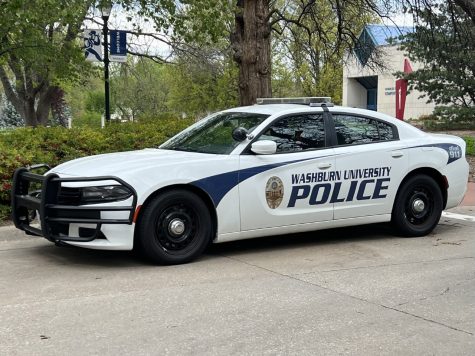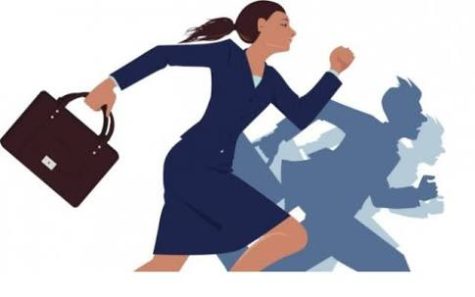Daija Coleman makes “good trouble” at Washburn
Indigo Magazine
Imagine dedicating your academic career to a department where you do not have the same opportunities because of your disability.
Daija Coleman, a recent graduate of the Washburn education department, used her capstone to raise awareness for the inequities that those with physical disabilities experience at Washburn University.
Coleman’s senior capstone project was creating awareness for accessibility issues, specifically within the education department at Washburn.
“Daija came up with the idea herself, to really focus on the importance of equity and inclusion for all. Her hope was that movement would be made so that it continues after she leaves,” said Tracie Lutz, a lecturer of education at Washburn.
Before Daija began her capstone, there were many education classes located in Carnegie Hall (a building on the National Historic Register) that were not accessible to those in wheelchairs or with mobility issues due to the only available elevator being a freight elevator and its inability to reach every floor.
“Because of my efforts during the spring 2022 semester, all classes were moved out of Carnegie and made accessible in one central location, which happened to be the Blair room in the Living Learning Center,” Coleman said.
Even when there is an elevator available, it has the potential to break down and create issues for students, faculty and staff who cannot take the stairs. Within the first couple of months of the 2021 fall semester, the elevator in Henderson had broken down three times, while the elevators in Stoffer Hall and Garvey Hall each broke down once as well. Every time an elevator breaks, it takes anywhere from a few hours to a week to repair.
“It causes an accessibility problem for everybody who uses that building,” said Danielle Dempsey-Swopes, the director of diversity and inclusion at Washburn University. “As a result, we’ve had to relocate a couple of classes until it can be repaired so that students have a class that is accessible.”
The last-minute change of a classroom is not a perfect solution. It does not create a stable learning environment that some students may need to get work done and can put unwanted attention on the student it was moved for.
“It puts a spotlight on your back because everybody knows that the class was moved. To me, that seems inequitable because it’s very obvious,” Coleman said.
Unfortunately, installing a new elevator in Carnegie Hall is not an easy solution either. Upgrading a small portion of the building to make it accessible would cost the university about $6 million, according to Dempsey-Swopes.
There is no simple fix when it comes to solving all accessibility issues, but moving the education department entirely to another building that is completely compliant with the Americans with Disabilities Act of 1990 would be a step in the right direction. A simple thing that everyone— including those directly affected and those who simply want to be supportive of the cause— can do is create awareness and advocacy for the importance of accessibility.
“Students can speak within their own families and community settings about the importance of accessibility for all. If they have to write papers or do projects, they might think about the importance of equity and grab onto that for either capstones, projects or discussion points within class. They can start small and build up, or they can jump into huge projects that really help them learn more about equity and also share the importance of equity,” Lutz said.
Going into her capstone, Coleman knew fixing a 30-year problem overnight wouldn’t be possible. Instead, she wanted to raise awareness and create advocates so that the accessibility issues wouldn’t be forgotten again after she graduated.
“I would say the biggest challenge has been movement. I know that Carnegie has had issues per accessibility for decades. I think Daija’s capstone gave it some life, so that it doesn’t remain on a back burner,” Lutz said.
Coleman’s project consisted of four main parts. It started with a petition on change.org, which received over 820 signatures. She then organized a “March on Inclusion” where students, faculty and staff went around campus chanting and holding signs in front of major buildings such as Mabee Library.
“It was a beautiful day— filled with community members, people that have physical challenges, faculty members, students, Washburn organizations— where we came together as a group to let people know how driven not only Daija is, but many other people, so that everyone has accessibility to all entities on campus,” Lutz said.
An event was organized in collaboration with Washburn Student Government Association and Campus Activities Board that brought Josh Blue, a stand-up comedian who has cerebral palsy, to campus for a show. Finally, stories about why accessibility is important were hung in the glass walkway in the Memorial Union.
“My peers and my faculty were what inspired me to make this change and keep going. I couldn’t have done it without them,” Coleman said. “Without the support of my peers, I don’t think the word would’ve gotten out as quickly as it did. I am so thankful for each and every person that participated in all facets of my capstone, even if it was just sharing or signing the petition. A project like the one that I took on cannot be successful with just one individual. It is a team effort.”
In addition to moving education classes out of Carnegie, Washburn University administration completed a space survey in 2021 to gauge how much space is available on campus.
The education department hopes it will be able to completely move out of Carnegie in order to have one centralized location like many other departments on campus.
“I can’t speak to any details, but I know that no stone will be left unturned in considering how to make that program accessible to all students,” Dempsey-Swopes said.
As Washburn University searches for its next president and vice president of academic affairs, addressing the longtime issues in Carnegie remains in limbo. Some confusion about physical changes might be linked to the recent organizational changes.
In the spring 2022 semester, it was announced that the Department of Education would move from the College of Arts and Sciences to the School of Applied Studies on July 1, 2022, but this change did not impact the location of faculty or classrooms.
The department is now under the guidance of Zach Frank, who was named dean of the School of Applied Studies in February of 2022 after serving as interim since the summer of 2021. Education joins other SAS departments including criminal justice, allied health, family and human services and social work.
Frank said the physical location of the department is being discussed, but nothing formal has been decided.
Coleman successfully completed her capstone project at the end of the spring 2021 semester and made accessibility an important topic on campus. She said she felt heard and validated by administration throughout the whole process. When there was uncertainty of what steps to take next, Coleman said there was always support to help her connect to the right people.
“Washburn has been good to me. I couldn’t have asked for a better experience,” Coleman said. “The point of my capstone was to give back to the community that had given me so much, and I am so hopeful and excited to see the impact that it will continue to have on the student body even after I have left.”
Even though she had to face barriers that many other students will never have to, Coleman reflects positively on her time at Washburn.
“It warms my heart to think about all the doors I have opened for future students like me, and I hope that I have inspired some to continue making good trouble and talk about how to make campus better for everyone,” Coleman said.
Now that Coleman has graduated from Washburn with a bachelor’s degree in education, she has accepted a job teaching at Topeka Public Schools for the 2022-23 school year. She said that she has always wanted to make a difference in the lives of others and is excited to be able to do that for her career.
“I have seen beautiful growth, from being someone that would speak about the challenges she experienced on campus to someone that has taken action to make change come to fruition, so that others that follow her will have better accessibility on campus,” Lutz said. “I’ve seen her become more vocal, not only as a student, but as a citizen, and now as a teacher. She has represented the university and the community extremely well and we are all proud of her in the education department.”
Your donation will support the student journalists of Washburn University. Your contribution will allow us to purchase equipment and cover our annual website hosting costs.
